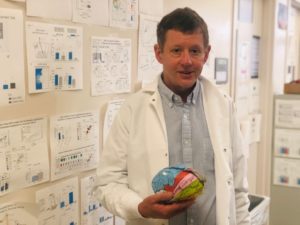This week the Psychology Society was fortunate to host Professor Kent C. Berridge, professor of Psychology and Neuroscience at the University of Michigan, and a specialist in studying brain systems related to motivation, pleasure and pain.
Professor Berridge began his talk by dissecting our experiences of both ‘wanting’ and ‘liking’. Although often considered identical, their distinction is fundamental to understanding the brain systems involved in motivation.
In fact, ‘liking’ and ‘wanting’ are processed in separate regions of the brain’s Nucleus Accumbens (NAcc) and these regions operate independently of one another, often involve different neurotransmitters (chemical signalling molecules such as Dopamine).
By comparing a mouse’s response to an electrical shock rod both before and after particular brain regions were activated (all mice were treated humanely), Berridge and his research team were able to demonstrate this important distinction. This has helped us to appreciate that sensory pleasures do not necessarily relate to a desire to experience them. In fact, “it is possible to want pain but not like it”, for example the practice of self-harm, as Professor Berridge explained.
The neural mechanisms of pleasure and pain can help us to understand our own emotional experiences more profoundly, and we are grateful to Professor Berridge for enlightening us on this topic.




